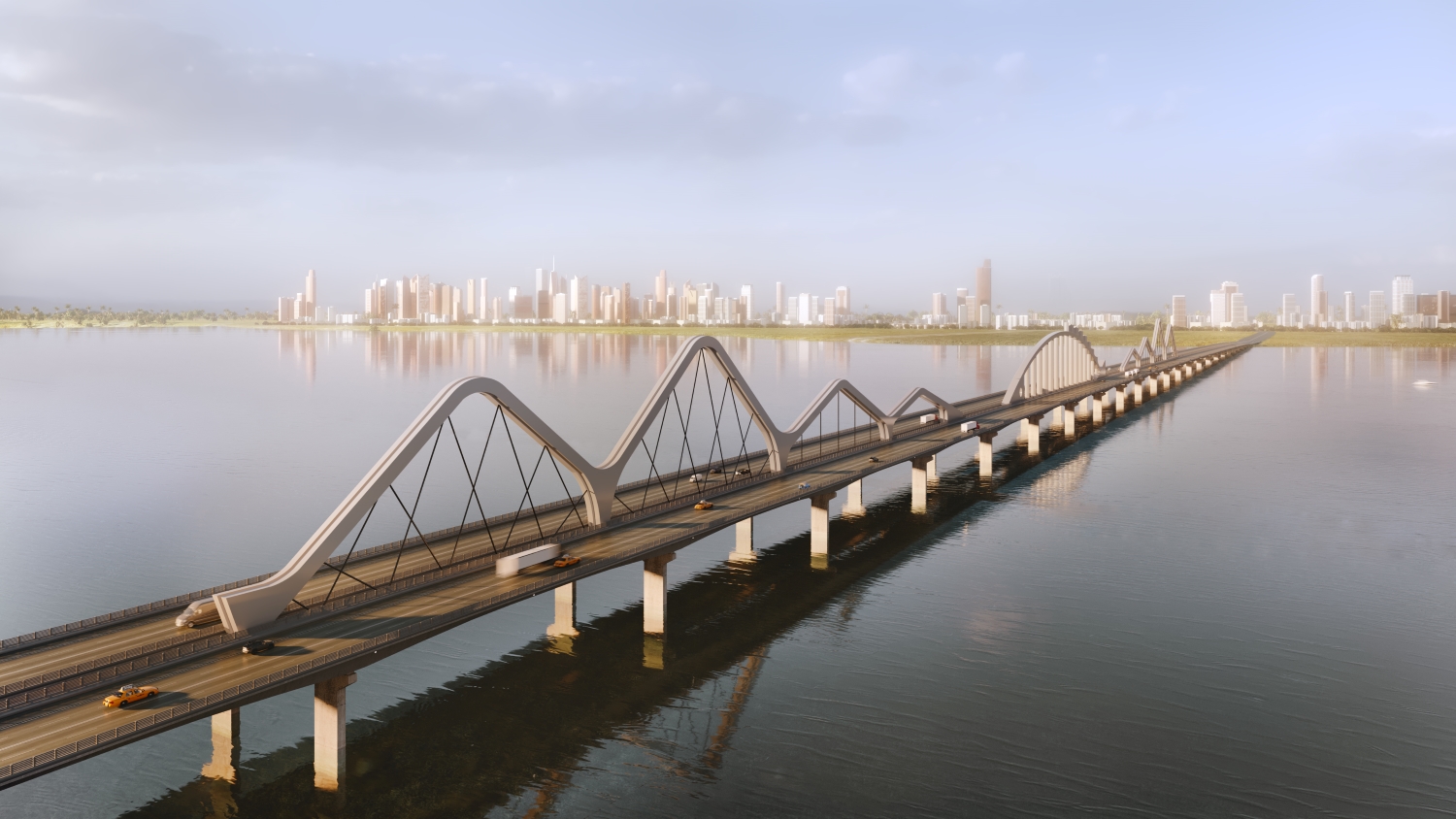Chinese consortium to transform Lagos with a US$2.5bn mega bridge
Once complete, the 37km Fourth Mainland Bridge motorable will be the second longest flyover in Africa
 Photo credit: PPP Lagos
Photo credit: PPP Lagos
A Chinese consortium is expected to soon start building a 37km bridge in Lagos, Nigeria's economic hub. Slated for completion in 2027, the US$2.5bn Fourth Mainland Bridge, the second longest of its kind in Africa, will alleviate congestion on Lagos' existing roads and spur economic activity in underdeveloped neighbourhoods.
China Civil Engineering Construction Corporation (CCECC) and the China Railway Construction Corporation International Group (CRCCIG) will oversee the development of the tolled road and bridge. The eight-lane structure will include three toll plazas, nine interchanges, and a 4.5km section over the Lagos Lagoon. It will complement the three existing bridges that link the mainland to the island regions of Nigeria's former capital.
With an estimated population of 20m Lagos is notorious for traffic congestion and chaotic urban transport network. In an effort to mitigate traffic congestion Lagos launched a new light-rail metro system last year, which was also constructed by CCECC. Once fully operational, the Lagos metro is expected to transport up to 500,000 passengers daily.
With only 60,000km of paved roads, the country is ranked 29th in the transport category of the Africa Infrastructure Development Index. The deficit in transport infrastructure stems from years of underinvestment. These projects are often politically driven and frequently abandoned mid-way due to lack of financing, administrative ineptitude, or outright corruption.
 The poor road and rail networks cause frequent breakdowns of vehicles and hinder efficient transportation of goods from production factories to points of consumption. This increases the cost of doing business. One study found that about 40% of export costs are linked to inefficiencies and informal payments along a single road corridor – the one linking Lagos in the south to Jibiya on the northern border.
The poor road and rail networks cause frequent breakdowns of vehicles and hinder efficient transportation of goods from production factories to points of consumption. This increases the cost of doing business. One study found that about 40% of export costs are linked to inefficiencies and informal payments along a single road corridor – the one linking Lagos in the south to Jibiya on the northern border.
McKinsey estimates that to fully realise its economic potential, Nigeria must invest up to US$839bn in infrastructure improvements by 2030, particularly in power and transport. This infrastructure gap, estimated to reduce GDP growth by up to 4% annually, diminishes profitability and deters private investment. According to its National Development Plan 2021–2025, Nigeria aims to enhance private-sector involvement in infrastructure development, with the public-private partnership model being particularly well-suited for the transport sector.
References
‘LASG selects CCECC-CRCCIG consortium as preferred bidder for Fourth Mainland Bridge project’, The Lagos State Government, 29 December 2022
‘Africa Infrastructure Development Index (AIDI), 2022’, African Development Bank Group, 26 March 2023
‘Nigeria gets its first urban metro light rail after a long wait’, NTU-SBF Centre for African Studies, 26 September 2023
‘Four things to know about Fourth Mainland Bridge project’, Business Day, 03 November 2023
‘Back to growth: Priority agenda for the economic revival of Nigeria’, NTU-SBF Centre for African Studies, 2023
‘Fourth Mainland Bridge: Sanwo-Olu assures property owners of compensation’, Punch, 26 January 2024
‘Lagos says Fourth Mainland Bridge will traverse 5 LGAs, property prices to increase’, Nairametrics, 29 January 2024
‘Dennis Isong: How the Fourth Mainland Bridge will benefit Lagosians’, BellaNaija, 30 January 2024
‘Lagos, Chinese firm seal rail, bridge project deals’, Punch, 02 February 2024
‘Lagos: drugs, firearms and youth unemployment are creating a lethal cocktail in Nigeria’s commercial capital’, The Conversation, 20 February 2024
‘The new ridiculously long £2.3bn bridge with eight lanes and three toll booths’, Daily Express, 18 March 2024
‘Fourth Mainland Bridge’, Wikipedia, Accessed 03 April 2024
‘Current Traffic Index’, Numbeo, Accessed 05 April 2024
‘Lagos’, Wikipedia, Accessed 06 April 2024














/enri-thumbnails/careeropportunities1f0caf1c-a12d-479c-be7c-3c04e085c617.tmb-mega-menu.jpg?Culture=en&sfvrsn=d7261e3b_1)

/cradle-thumbnails/research-capabilities1516d0ba63aa44f0b4ee77a8c05263b2.tmb-mega-menu.jpg?Culture=en&sfvrsn=1bc94f8_1)







